A passionate, whirlwind affair worthy of the greatest romances of the seventh art. Etchika Choureau, the rising star of French cinema, plays the role of the actress who makes hearts skip a beat. First discovered in 1953 by Italian director Michelangelo Antonioni, this fiery blonde with emerald-green eyes has been shooting films and appearing on magazine covers ever since.
In the role of the passionate lover : Moulay Hassan, a spirited young prince, known to the French public and destined to become King of Morocco. Almost everything separates them. Etchika Choureau, born Jeannine Paulette Verret in Paris in 1929, is French, Christian and divorced from Max Choureau, a beekeeper.
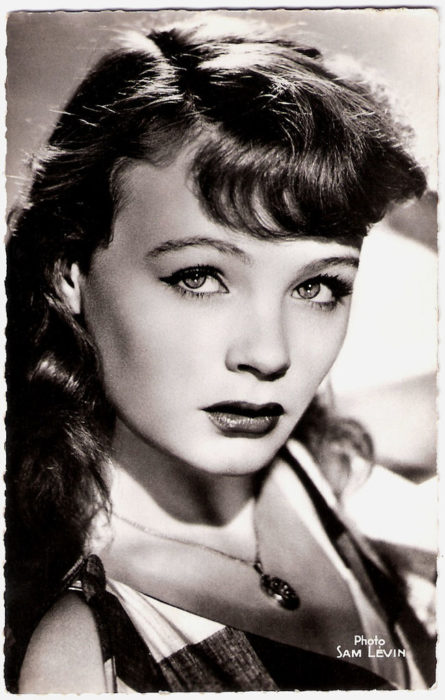
Prince Moulay Hassan is Moroccan, Muslim and his country, which has been fighting for years against the French colonial presence, is currently negotiating its independence. They say love never warns. While Moulay Hassan is in Cannes for a tonsillectomy in 1956, he meets the dashing Etchika during his convalescence.
He quickly fell under the spell of the woman whom critics were already calling « the new Danielle Delorme », another famous French actress. The two lovers see each other every day, cruising the Croisette in the prince’s Chevrolet convertible, much to the chagrin of the paparazzi, who never manage to get a photo of them together.
A few months later, the two lovebirds were caught up in reality. Morocco had just gained its independence, and the Crown Prince had to be at his father’s side to help him govern a country where everything still had to be done.
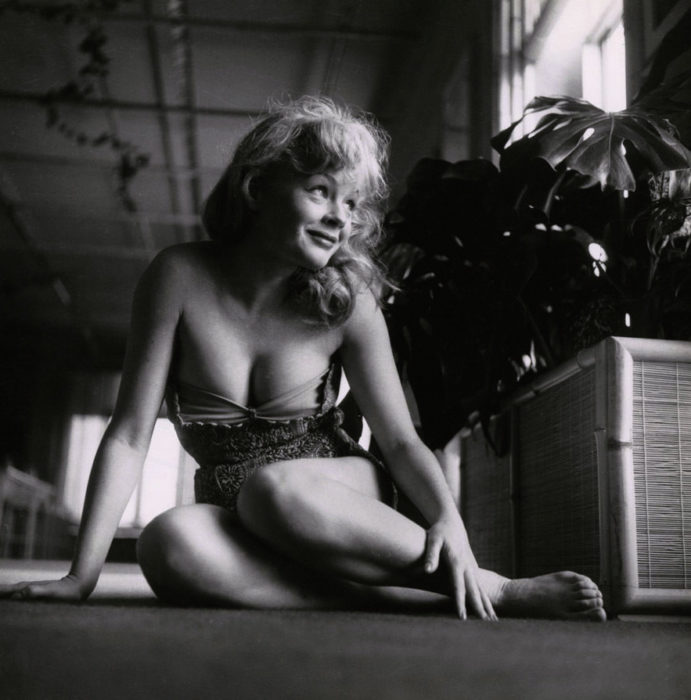
A fiery passion
« Every night, they told each other banalities interspersed with I adore you here and I love you there »
The romance didn’t end, on the contrary. The feelings of the two lovers only grew with the distance. Despite his responsibilities, Moulay Hassan always manages to free himself for his sweetheart. When it’s not a two- or three-day getaway with her, they spend endless hours on the phone.
« Every night, they would talk banalities interspersed with » I adore you here and I love you there, » recalls Midhat Bourequat, who at the time was in charge of securing all the royal family’s communications. At the palace, the Crown Prince hid nothing of his love affair, and everyone knew about it. He even gave official instructions to the Moroccan embassy in Paris.
« Moulay Hassan was crazy about her »
In case of need, Etchika Choureau must be received at all times and have a diplomatic service at her disposal. Every week, the prince also has Moroccan pastries, traditional jewelry and handcrafted decorative items delivered. « He was crazy about her, » confides a former embassy secretary. The only drawback was that Mohammed V did not take kindly to his son’s dalliances with a French starlet, and a divorced one at that.
In France, where the romance between Etchika Choureau and the « Oriental Prince » was the talk of the town, the celebrity press speculated on the future of the relationship. In December 1957, the now-defunct magazine Noir et Blanc ran the headline: « Will the Crown Prince of Morocco renounce the throne for a Frenchwoman? »
« Alawite tradition and palace protocol demanded that a prince marry a Moroccan woman. A marriage to a European woman was unthinkable »
The same question was on the minds of the royal family, some of whose members questioned the sovereign about the possibility of a marriage between the actress and the prince. « Alawite tradition and palace protocol demand that a prince marry a Moroccan woman. A marriage to a European woman was unthinkable, » comments Midhat Bourequat. Moulay Hassan flouts protocol; he claims to be modern, evolved and a Francophile.
Not shy of a paradox, he even had her, his beautiful Parisian girlfriend, pose for pictures in traditional Zayane garb, a Berber tribe from the Middle Atlas region. These shots were published in Ciné Revue, a Belgian magazine, in April 1958.
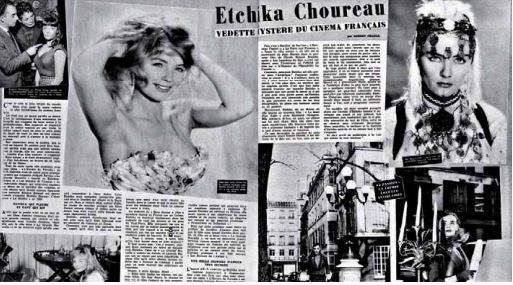
While he was busy violently quelling the Rif revolt, Etchika Choureau tried to revive her career, which she had put on hold for a year. She arrived in Hollywood in 1958 to shoot Les commandos passent à l’attaque and C’est la guerre (Lafayette Escadrille), directed by William A. Wellman. Both films flopped at the box office. The actress decided to give up acting and moved to Rabat to be closer to her prince.
First steps at court
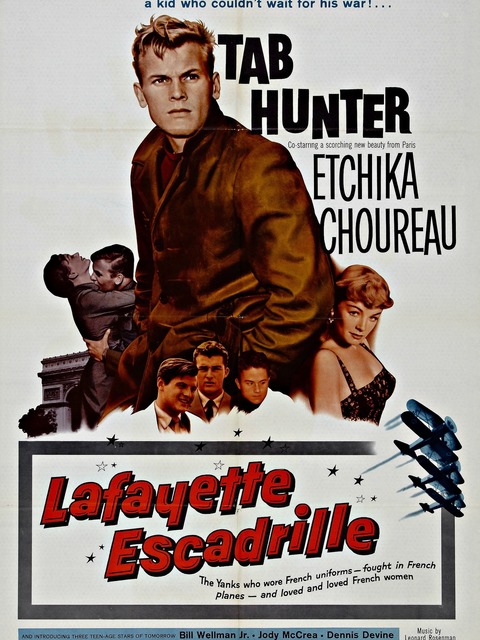
In Rabat, Etchika Choureau lived in a plush villa in the Souissi district, complete with guards, chauffeurs and servants. The two lovebirds are happier than ever. In addition to candlelit dinners and weekends in Skhirat, Moulay Hassan is constantly showering his beloved with jewelry and the latest creations from Dior.
And if the couple favors intimacy, the Prince does everything to make his companion feel at ease in society. « She was treated like a princess, and the Prince’s entourage treated her with great respect, » confirms Midhat Bourequat.
In the capital, the former actress created a new life for herself. She made friends with a number of French personalities living in Morocco, most of them from the arts and culture world. Friends she ends up meeting every day at the « Club », a prestigious bar-restaurant in the city.
When her prince is too absorbed in the business of the kingdom, Etchika Choureau takes the opportunity to travel to Marrakech, a city she loves, and Paris, where she still frequents the world of show business. All invoices are sent to her boyfriend, at his insistence. And while some people see her as a gold digger, others believe that she was a dignified woman with little interest in title or fortune.
According to Midhat Bourequat and his brother Ali, whose family was close to the court, the relationship between the two lovers also experienced a few hiccups, often due to the prince’s pronounced taste for women. Infidelities of no importance according to Moulay Hassan, who used to say « Etchika is Etchika ».
Mohammed V is said to have told his son to choose between his young conquest and the throne
According to Ignace Dalle, author of the biography Hassan II: entre tradition et absolutisme, in mid-1960, Etchika Choureau became pregnant and « already imagined herself queen of Morocco« . Exasperated by this relationship that had gone too far, Mohammed V reportedly told his son to choose between his young conquest or the throne. He even threatened to dismiss him as Crown Prince.
The king is dead. Long live the King !
A few months later, in February 1961, Mohammed V died following a minor operation. It was the death that marked the definitive end of the romance between the two lovers. At the time of the tragedy, Etchika Choureau was in Paris. When she heard the news, she tried to contact Moulay Hassan, but to no avail.
On the other side of the Mediterranean, the prince must now assume his responsibilities, firstly for his father’s funeral, and secondly to ascend the throne. And since Alawite tradition does not allow a king to be celibate, the future Hassan II married Lalla Latifa at the same time as the funeral.
Despite the distance, Etchika Choureau knew everything. Four days after Mohammed V’s death, she finally managed to contact her lover. Disappointed and heartbroken, Etchika swore never to speak to him again.
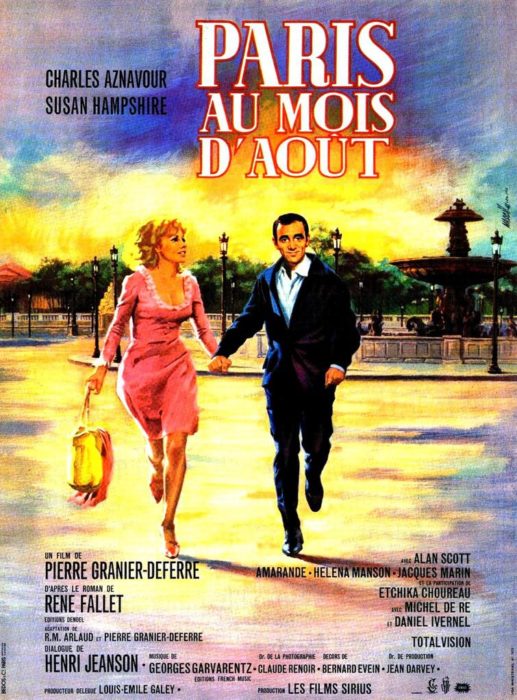
To fight the heartache, she collected her belongings in Rabat and moved back to Paris, where she resumed her film career. In 1962, she landed the lead role in a film entitled La prostitution, directed by Maurice Boutel. She played a provincial girl who arrives in Paris for love, only to find herself forced to sell her body. She went on to star in Bernard Borderie’s Angélique: marquise des anges in 1964, followed by Pierre Granier-Deferre’s Paris au mois d’août in 1968. The former was a lukewarm success, while the latter was a complete flop.
The cruel world of cinema never waits for anyone, and many other actresses are already at the top of the bill. On the other hand, her quarrel with Hassan II did not last very long. To justify his recent marriage, the young king invoked the obligation to comply with protocol.
« When he was still a prince, Hassan II claimed to be evolved and monogamous. However, as soon as his father died, several women destined for the harem entered the palace »
According to the Bourequat brothers, Hassan II would never have risked marrying Etchika Choureau, so respectful was he of Makhzenian customs and so impatient was he to hold power. « Hassan II was a man of paradoxes. When he was still a prince, he claimed to be evolved and monogamous. Yet, as soon as his father died, several women destined for the harem, including young women from the Zayane tribes, entered the palace, » recounts Ali Bourequat, in an interview posted on YouTube in July 2013.
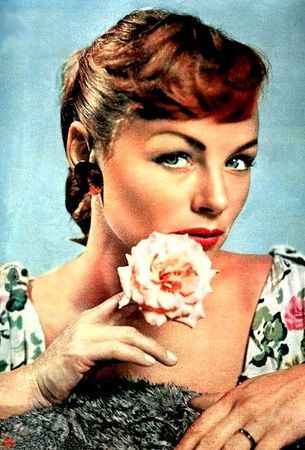
This did not prevent the two protagonists’ love from turning into friendship. According to the Bourequat brothers, Etchika Choureau had a certain influence over the monarch. She knows everything that goes on in the palace and all the king’s wives.
Rumors also have it that the pretty blonde was involved in the disappearance of Mehdi Ben Barka in 1965. Her Paris home was said to have served as an operational center for the socialist leader’s kidnappers, notably generals Mohamed Oufkir and Ahmed Dlimi.
In 2004, just as France was announcing its intention to lift the defense secrecy on documents linked to this affair, Etchika Choureau was heard by the judge in charge of the case. To the judge’s great surprise, she presented him with Oufkir’s passport. According to her, he had forgotten it one day when he had come to give her a message from Hassan II. That’s all that came out of the hearing, after which she was never troubled again.
Exchanges of courtesies
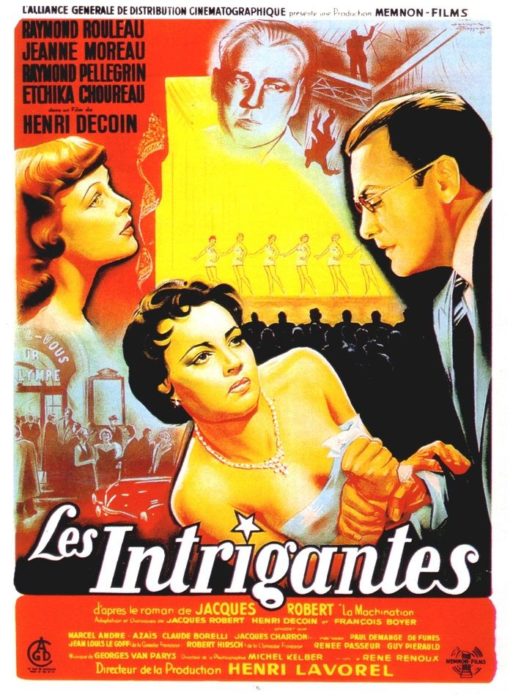
In 1966, Etchika Choureau put a definitive end to her acting career. She withdrew from the hustle and bustle of the media and led the life of a young retiree between Paris, Rabat, Marrakech and her many country houses. Reconciled with Hassan II, the former star saw the doors of the palace open to her and began to socialize with members of the royal family.
Two years later, a new man entered her life. He is Philippe Rheims, a wealthy auctioneer, extremely well known in France. Etchika Choureau introduced her new husband to Hassan II, who quickly befriended him. At the time, the sovereign was building several palaces and secondary residences throughout Morocco, and he needed an interior decorator. His natural choice was Philippe Rheims, whose auction room contained some very rare works of art.
When the Rheimses visit the kingdom, especially for Christmas and summer vacations, they are welcomed with great pomp. They are always treated to the finest suite at L’Amphitrite in Skhirat or La Mamounia in Marrakech. All, of course, at the palace’s expense.
« No one was to upset the Rheimses and, in turn, they never interfered in matters that were none of their business »
Etchika Choureau and Philippe Rheims are considered members of the royal family in their own right. When the king visits Skhirat with his family and the Rheimses are also there, he systematically sends the princes and princesses to say hello. Philippe Rheims even had the privilege of playing long rounds of golf with Hassan II. « No one was allowed to upset the Rheimses, who in turn never interfered in matters that were none of their business, » Midhat Bourequat explains.
Except on that day in 1973, when Philippe Rheims delivered a message from the Bourequat brothers to the king during a round of golf. General Dlimi, head of the Moroccan security services, was allegedly plotting to overthrow Hassan II. Immediately after these revelations, the golf game was cut short.
Some time later, Ahmed Dlimi himself made it clear to Philippe Rheims that he was no longer welcome in Morocco. A ban that was not to last. The French couple were soon welcomed back with open arms in the kingdom, and in turn, the Rheimses invited notables and top Moroccan officials to their table in France, including Moulay Ali Alaoui, Hassan II’s cousin and ambassador to Paris.
Khalti Etchika
Etchika Choureau is still one of the palace’s most distinguished guests
Etchika Choureau remained on friendly terms with Hassan II until his death. With the accession of Mohammed VI to the throne, she continued to figure among the kingdom’s distinguished guests. « She had managed to win Hassan II’s trust and consideration. He had introduced her to the court, imposed her as a member of the family. Once you’ve passed that stage, you rarely go back », assures a person close to the court. In 2013, for example, Etchika Choureau was one of the guests invited by the King and his wife, Lalla Salma, on New Year’s Eve.
In her later years, aside from royal invitations, the former actress liked to spend winters in the palaces of Marrakech, far from the dreariness of Paris and the solitude of country houses. She was also keen to pass on her love of Morocco to her grandchildren. Those close to her called her « Her Majesty » or the « Grande Dame« , but no one dared ask her about her love affair with the late monarch.
« She doesn’t talk. Neither about Hassan II nor about Morocco », says Ali Bourequat, who continues: « Even if she knows a lot of things, for her, Sidi is Sidi. » The publishing houses that have offered to publish her memoirs have all been turned down. Etchika Choureau has made her choice. To remain silent and keep all her secrets. She died in Rabat, on the 24th January 2022, at the age of 92.
Press. Etchika and Moulay Hassan on the front page
The French weekly Noir et Blanc devoted its cover to the couple, recounting their meeting in a highly romanticized tone.
In December 1957, the magazine Noir et Blanc devoted a cover story to the romance between the actress and the Crown Prince. The article, titled « Le prince héritier du Maroc va-t-il renoncer au trône pour Etchika Choureau?« (« Will the Crown Prince of Morocco renounce the throne for Etchika Choureau?« ), didn’t really deal with the question, but instead embroidered on the meeting of the two lovers in a highly romanticized style.
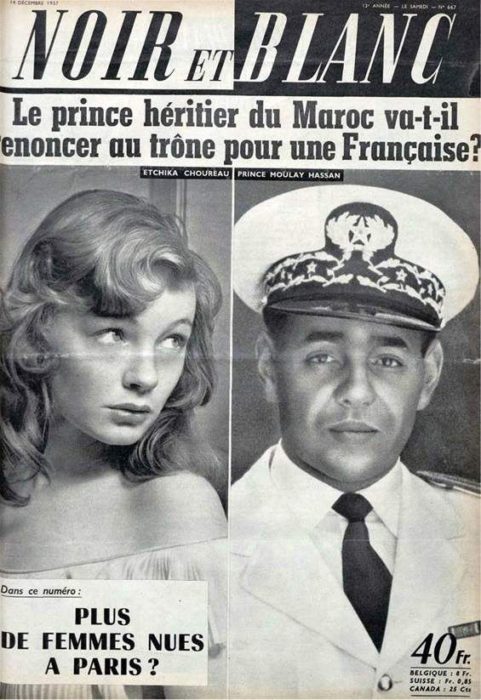
According to the weekly, as soon as he met Etchika, Moulay Hassan « immediately appreciated her simplicity and genuine kindness, which other young actresses had not accustomed him to when he first approached them. She was spontaneous and cheerful, very natural. As if to an old friend, she told him how she had achieved her young fame as an actress. She spoke of her childhood in her native Loiret« .
According to Noir et Blanc, the starlet also talked about her studies at a medical massage school and her work as a « honey seller in the Gâtinais region« . Married to a beekeeper in 1953, she opened a honey store in Paris before taking acting classes with Renée Simon. It was then that « Alain Cuny (a French actor) discovered her, and soon audiences were seeing on screen (…) the fragile silhouette and romantic gaze of this young debutante« .
Now a star, Etchika Choureau left her husband. Moulay Hassan, for his part, tells her how he spent his childhood between « law studies, an introduction to political science and preparation for the formidable office of Crown Prince« , reports the weekly, which does not hesitate to recreate the dialogue between the two lovebirds by having the Crown Prince speak in the first person.
« Raised in the West, Moulay Hassan took to many sports: tennis, ping-pong, swimming and horse-riding, » describes the journalist, who continues: « Between the modern-minded Muslim prince and the former honey-seller, love slowly forged a strong bond. » A relationship so strong, in fact, that the magazine concludes its article with this supposition: « Moulay Hassan is so infatuated with the seductive star that he would consider relinquishing his prerogatives. » He proved them wrong.
Glaoui-Aubry. The actress and the Oriental prince, the other story
Another famous Frenchwoman succumbed to the charm of a powerful Moroccan. She was Cécile Aubry, a French actress, screenwriter and director born in 1928. She made her acting debut in Henri-Georges Clouzot’s Manon (1949). Thanks to this role, she became the new hope of French cinema and signed a contract with 20th Century Fox.

In 1950, she travelled to the Moroccan Atlas to shoot The Black Rose, directed by Henry Hathaway. It was there that she met Si Brahim El Glaoui, son of the pasha of Marrakech, Thami El Glaoui.
The two lovers married quickly and discreetly. They had a son, Mehdi. In 1956, Cécile Aubry and Si Brahim El Glaoui ended their marriage. Despite this separation, the actress remained very discreet about the affair.
One of the few statements she made was: « I lived in a kind of clandestinity, without showing my face. I lied to everyone, it was very trying. » Struggling to land a leading role, Cécile Aubry, now single, turned her attention to screenwriting. From 1965 onwards, she wrote and directed the legendary Belle et Sébastien TV series, in which her son played the lead role.
Article published in TelQuel issue 608, February 21, 2014. Updated October 2024
Written by Nina Kozlowski et Mohammed Boudarham. Edited in English by S.E.




